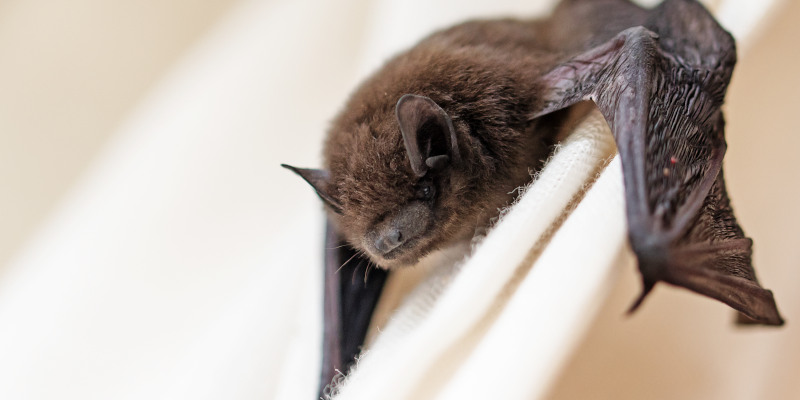Our bat removal services involve a humane and legal process called exclusion.
There are many things in life that can fall under both advantageous and disadvantageous headings depending on the situation. For example, we need water to live, but too much of it is definitely problematic, especially if you cannot swim or you have a flood in your home. The same is true when it comes to bats. They are a vital part of our eco-system and, therefore, protected, so you cannot and should not poison or otherwise exterminate them.

While they are a natural pesticide with their ability to consume thousands of insects each night, they do pose a health risk if they have chosen your Colfax, North Carolina home as their nesting location. If this occurs, you should not attempt a DIY bat removal method. Instead, you should call our professionals here at The Dead Pest Society. We have a certified wildlife agent on staff who understands and follows the humane and legal protocols for bat removal.
The first thing to know is that bat removal cannot be legally done from May 1 through July 31. It is illegal and harmful to bats, as this is their maternity season and most have only one offspring each year. We also do not do bat removal during the winter months when bats are hibernating, as disturbing them during this time means they lose their fat reserves and may not survive the rest of the season.
Bat removal is accomplished humanely utilizing a process called exclusion. Since bats will vacate your home in the evenings, we use a one-way device that lets them exit but not return. Once there are no bats remaining, the opening can be sealed and made bat-proof. If you suspect you have bats in your home, give us a call and we’ll investigate to be sure what is present. Hearing sounds can be indicative of other wildlife that we can remove any time of the year. If you do have bats and it is not a time when we can perform bat removal, we can schedule a return for a suitable time.
At The Dead Pest Society, we offer bat removal services in Winston-Salem, Asheboro, Kernersville, Lexington, Colfax, Belews Creek, and Thomasville, North Carolina.



